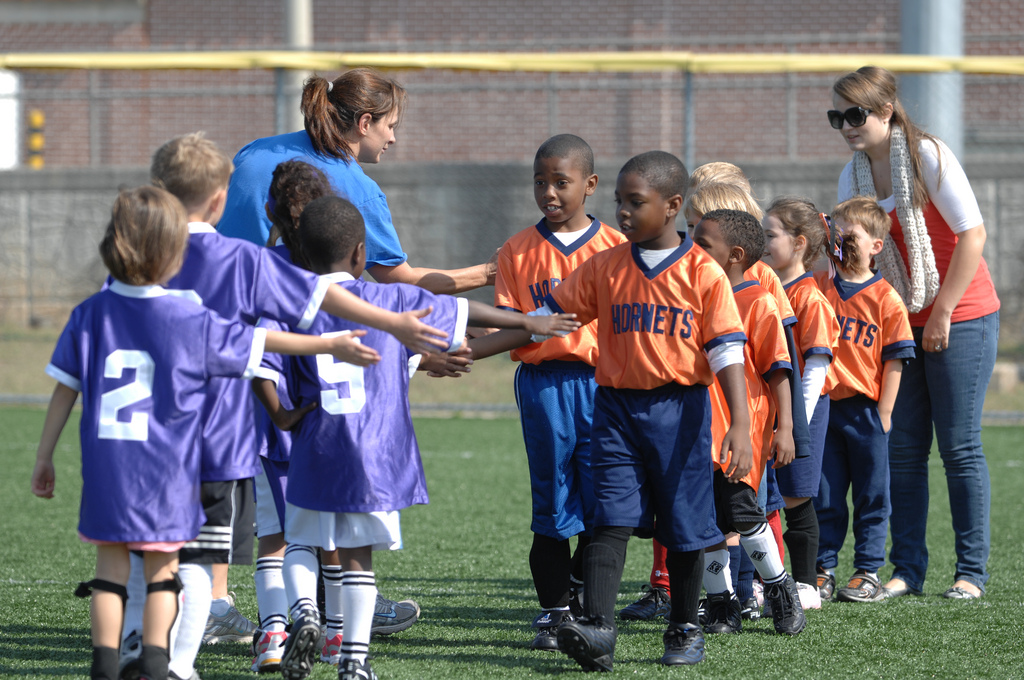How to Coach Youth Soccer
Whether your neighborhood team needs a new coach or you want to participate more with your own children’s soccer team, coaching a youth soccer league is something you shouldn’t take likely. Here are some tips to help you coach a youth soccer league, even if you’re not an expert soccer player.

Set Ground Rules Before the Season Starts
Before the season, gather all of your player’s parents, your coaches and assistants together in a meeting. You can do this with or without the players present, depending on their age and level of participation. The goal of this meeting is to set ground rules before the season starts. Include things such as sideline behavior rules to discourage overenthusiastic parents from picking fights or causing problems, the responsibilities of your assistant coaches, how to contact players who might be tardy or absent and any other things you can think of that might apply to your league and its members. Get the parents involved, especially when coaching young players. You can always adjust these rules as the season progresses, depending on your needs.
Don’t Forget Uniforms
There’s nothing quite like the feeling your players get when walking out onto the field in matching uniforms, but it’s important to choose the right material for those shorts and jerseys. While soccer isn’t as rough-and-tumble as football or some other youth sports, kids still fall, tear their clothes and make a mess of themselves, all in the name of getting a ball into a net. This isn’t a bad thing, especially if they’re having fun, but it can be expensive if you choose cheap materials for their uniforms. Do some research and choose the right material that is affordable, durable and easy to wash so you have a uniform your players can enjoy throughout the entire season.
Learn Soccer Drills

If you’ve never coached a soccer team before, but you’re the only one willing to step up and take the responsibility, the first thing you should do is learn as much as you can about the game — and that includes learning drills you can teach your players. At the minimum, you’re going to need dribbling, kicking, passing and defensive drills, so everyone has a chance to practice these aspects of the game. Take the time to learn the rules of soccer, as well. Although they are often modified for youth soccer, they still apply and you’ll need to know them and any modifications before your first game.
Don’t Lose the Fun
Finally, you’re not coaching a major league team here. As a youth soccer coach, you’re coaching kids and the only reason they show up at the field every week is to have fun. No matter what you do, don’t lose the fun that comes with the game. Learn as much as you can, keep overly enthusiastic parents in line and have fun. Everything else will fall into place.















